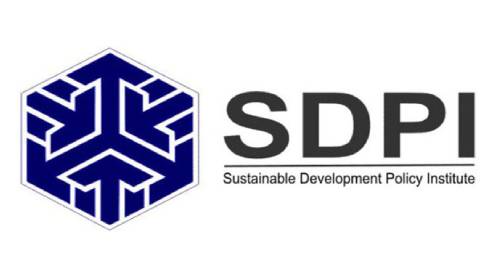‘Next elected Govt should declare emergency in Pakistani energy sector to effectively deal with many of its woes including circular debt’
The incoming elected government should declare a state of emergency in the energy sector to effectively deal with many of its issues that have been persisting for the last many decades and continuously worsening each passing day.
This was one of the emphatic recommendations shared by the concerned speakers who attended the recently held panel discussion to suggest the way forward for the next elected government in the country to implement the agenda of reforms in the energy sector. The Sustainable Development Policy Institute (SDPI) hosted the roundtable at a hotel in Islamabad. Several concerned energy and development experts, incumbent and former officials of power sector companies attended the discussion and shared their proposals for improving the state of affairs in the energy sector in the incoming regime of the elected government in the country.
The concerned speakers pointed out that constantly increasing circular debt, high cost of power generation, highly unstable and unreliable transmission and distribution system, high fuel bill, and much less utilisation of the indigenous power generation sources are some of the key challenges for the incoming elected government.
They were of the view that the next government would be left with no choice but to effectively impose a set of emergency measures to deal with these issues given the background that routine interventions by the past governments repeatedly failed to tackle these enormous challenges.
They pointed out that the economic well-being and stability of the country were linked to the early resolution of these energy sector issues as their persistence was one of the main reasons behind the bad shape of the national economy. The speakers pointed out that issues like circular debt and capacity payments to old IPPs based on fossil fuels were a constant drain on the public exchequer in Pakistan and the reason behind the unchecked hike in electricity tariffs.
The speakers said that the next government should swiftly implement the agenda of privatisation of power companies including DISCOs to minimise the government’s footprint in the energy sector to increase its efficiency, improve management, and decrease corruption, bad governance, overstaffing, and pilferages.
They suggested that power consumption in the industrial sector should be phenomenally increased while the domestic sector should adopt the latest energy conservation practices to follow the international standards for the power sector.
In his introductory remarks, Dr Khalid Waleed, who is a PhD in Energy Economics and a research fellow at the SDPI, expressed concern that the share of unsustainable energy sources had been increasing for power production in the country despite Pakistan being ranked among the topmost climate-vulnerable nations.
He told the audience that around 16,000 MWs of electricity was consumed just to produce cooling effects for the commercial and residential buildings in the country.
Dr Waleed informed the moot that the Pakistani power sector mainly comprised 22 public sector entities having 139,442 employees. He said the net losses of the Pakistani power sector stood at Rs 320 billion with the government had been paying Rs 970 billion in subsidies annually. He said the power sector generated Rs three trillion in revenue annually.
He mentioned that maintaining the delicate balance between ensuring affordability for end-consumers of the power sector and the financial stability of the energy sector was one of the major challenges the new government in the country had to face.
He said the new government should adopt innovative financial mechanisms to effectively manage and reduce the circular debt and ensure the financial sustainability of the energy sector.
He suggested that the new government should adopt a set of effective measures to provide a conducive environment for both prospective local and international investors in the energy sector.
Dr Waleed said the energy sector reforms should align with and contribute to achieving the sustainable development goals, especially in areas related to affordable and clean energy, climate action, and the eradication of poverty.
Irfan Ahmed, a senior energy expert, told the audience that massive renewable energy sources had the capability of producing 330 GWs of clean electricity in the country but the total installed capacity of wind and solar power projects in Pakistan was not more than 45 GWs.
He said that Pakistan should indigenously produce equipment and technology for setting up alternative energy projects as one effective step in this regard would be using concrete towers instead of steel towers for the wind power plants.
Former chairman of the National Electric Power Regulatory Authority (NEPRA), Tauseef H Farooqi, told the audience that the Competitive Trading Bilateral Contracts Market regime introduced by the NEPRA was the way forward for the new government to phenomenally increase the footprint of the private sector in the energy arena of Pakistan.
Dr Sebastain Paust, Head of Development Cooperation at the German Embassy, suggested that leading renewable energy equipment-producing companies should be given incentives to set up their production plants in Pakistan to boost its drive to increase clean power production in the country.
Dr Abid Qaiyum Suleri, SDPI Executive-Director, expressed gratitude to the concerned energy experts who attended the roundtable and assured the audience that their effective recommendations would be shared with the incoming government to be formed after general elections for quick implementation.







